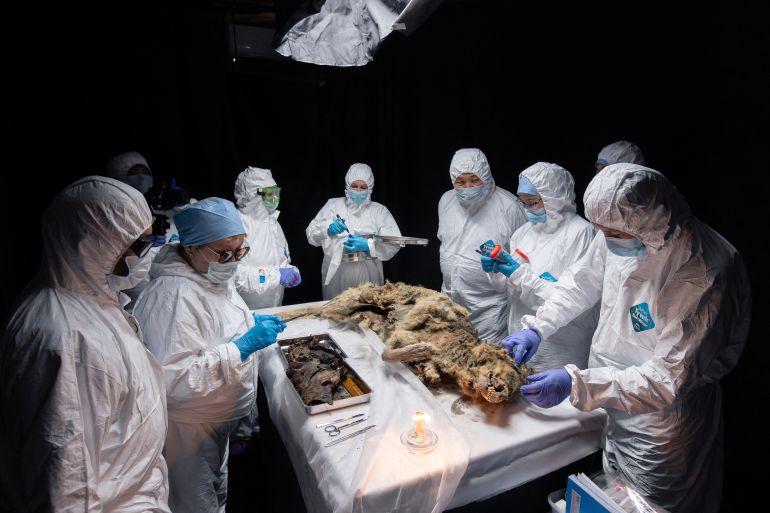A study of a prehistoric wolf found frozen in ice for thousands of years by Russian scientists
Russian researchers are currently conducting an examination on a wolf that has been frozen in permafrost for approximately 44,000 years, a discovery that is described as unprecedented. Initially found accidentally by individuals in the remote northeastern area of Yakutia's Abyysky district in 2021, the wolf's remains are now under detailed scientific scrutiny in Yakutsk, as reported by Reuters.
Albert Protopopov, head of the mammoth fauna study department at the Yakutia Academy of Sciences, labeled this finding as the first of its kind, representing a late Pleistocene predator. The age of the wolf is estimated to be around 44,000 years, marking a significant milestone in scientific exploration.
Situated amidst the Arctic Ocean in Russia's Arctic region, Yakutia encompasses vast expanses of swamps and forests, with nearly 95% covered in permafrost. Extreme winter temperatures have been recorded in the region, plummeting as low as minus 64 degrees Celsius (-83.2 degrees Fahrenheit).
Protopopov highlighted the rarity of this discovery, emphasizing that while ancient animal carcasses are occasionally unearthed from beneath the melting permafrost, finding a large carnivore such as this wolf is exceptional. Described as an agile and active predator, slightly smaller than cave lions and bears, the wolf played a crucial role in the prehistoric ecosystem as both a hunter and scavenger.
The paleogenetics laboratory at the European University in Saint Petersburg sees this finding as a valuable opportunity to delve into the dietary habits, behavior, and genetic relationships of ancient wolves that inhabited Eurasia's northeastern regions 44,000 years ago.
Source: ALJAZEERA
ALJAZEERA MEDIA NETWORK
